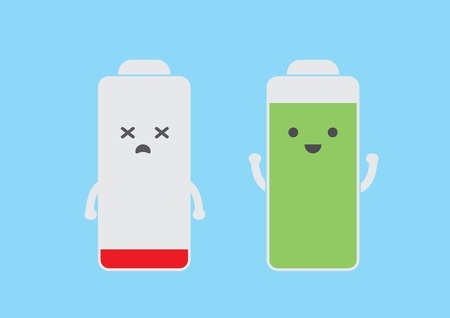3 min read
Personal Leadership Development Plan: Helping Teams Under Stress
IS YOUR TEAM UNDER STRESS?
The following is another lesson from my coaching play book about a leader whose team was...
By: Diane Ring on October 25, 2021

Poor employee accountability is one of the top 3 greatest challenges my coaching clients wrestle with. I recently wrote about how to create a culture of accountability, the focus was on what bosses can do to be more successful at holding employees accountable. Here is another way to think about accountability in the workplace.
Today I invite you to explore what fuels accountability in the workplace - your employee’s energy. For this exploration, I will point us to the great work of my colleagues at Juice, Inc. Juice co-founder, Brady Wilson, says, “We know that energized employees fuel great customer experiences and better business results.” I also assert, energized employees are therefore also highly accountable employees. Engagement and accountability are kindred characteristics, as it is rare to find low accountability in people who are highly engaged and vice versa.
Wilson goes on to say, “Our work with organizations over the past twenty years has revealed the biggest obstacle to energized workplaces: how we think about engagement. Today’s employees are exhausted. Lacking energy, they resort to quick fixes, workarounds, and reactive firefighting.” Hmm…. Don’t those low energy behaviors sound like they could also describe low accountability?
In my coaching practice, I often see that what appears to others as a lack of accountability may really be performance a break down due to a lack of energy. People do not have unlimited capacity to think and work unlimited hours a week. Many people are working beyond their capacity and simply can’t meet the demands bosses keep piling on them often with little positive feedback. They don’t feel valued. Many are people who desire to take a great deal of responsibility, yet they don’t know if it is OK to ask for help. They don’t feel supported. Some are caught up in an organization change where responsibilities seemed to double and change over night and they no longer like what they are being asked to do. They don’t feel inspired.
All of these conditions are energy-depleting and when are fuel is low, our brains can’t help but resort to quick fixes, workarounds, reactive firefighting, and many more like blaming, finger pointing, defensiveness, avoidance, apathy – qualities we associate with low accountability.
You can read more about the research and ways to tap into the energy that fuels high performance in Wilson’s new book, Beyond Engagement, A Brain-Based Approach That Blends the Engagement Managers Want with the Energy Employees Need. You will learn how to draw out what matters most to individuals and teams at the ground level so managers and employees can partner to remove interference and release energy. This will lead you to better understanding the driving needs that “are like oxygen to your employees; that is to say, if deprived of any of them, they will act out swiftly and decisively.”
I encourage you to check out Beyond Engagement and try a new way to have a conversation with your employees to discover what their form of “oxygen” is and what interference is potentially draining them from working at their best. That insight will enable you to partner with them to harmonize competing needs, challenge limiting beliefs and open up new ideas for creating more productivity, energy, engagement and accountability in the workplace.
For more reading suggestions and best practices in developing workplace accountability, follow the "Inner Ring" Blog here, or click below!
How have you seen low-energy affecting accountability in the workplace? Tell us below!
Nov 4, 2021by Diane Ring
IS YOUR TEAM UNDER STRESS?
The following is another lesson from my coaching play book about a leader whose team was...
Nov 3, 2021by Diane Ring
There is nothing like a sudden change of executive leadership to trigger all kinds of personality dynamics in a team....
Nov 2, 2021by Diane Ring
More than 70% of executives are not effective at supporting new-to-role peers and managers according the Corporate...